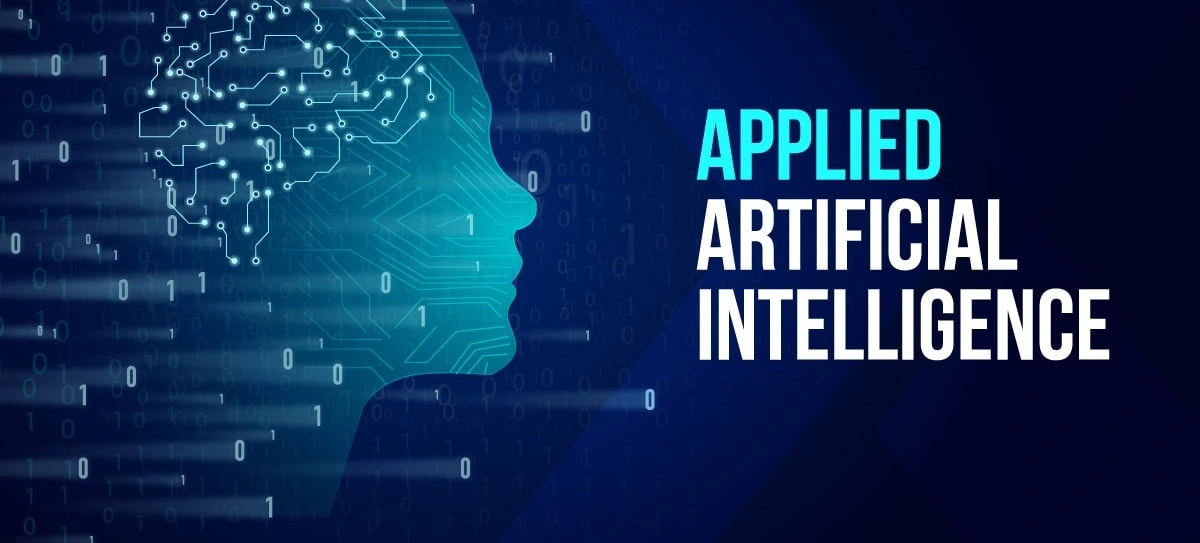
Applied Artificial Intelligence
Overview
Applied Artificial Intelligence (AI) teaches students how to implement AI techniques to solve real problems across various industries. You’ll get to learn skills to design and develop AI in areas such as healthcare, finance, robotics, transportation, and more.
Key topics that you’ll learn include machine learning, deep learning, natural language processing, computer vision, and AI ethics. You will get to work with industry-standard tools and frameworks like Python, TensorFlow, and PyTorch.
Objectives
- Develop Practical AI Skills
- Understand AI Concepts and Techniques
- Solve Real-World Problems
- Master Data Handling and Analysis
- Promote Ethical AI Practices
- Enhance Decision-Making Abilities
Prerequisites
- Science background
- A high school diploma or equivalent
- English proficiency
- Personal Statement (Tentative)
Curriculum Outline
- Mathematics 1
- Introduction to Computer Systems
- Programming Fundamentals
- Mathematics 2
- Machine Learning
- Data Structures and Algorithms
- Web Systems and Technologies
- Object-Oriented Programming
- Data Engineering and Visualisation
- Ethics and Professional Conducts
- Artificial Intelligence in Business and Society
- Introduction to Software Engineering
- Embedded Systems Programming
- Computer Vision and Deep Learning
- Database Systems
- Cyber Security Fundamentals
- Cloud Computing and Big Data
- Large Language Models
- Edge Computing and Analytics
- Change Management
- ITP: Cross Domain Prototyping
- TP: Execution & Delivery
- Industry Certification Module
- Integrated Work Study Programme
- Capstone Project
Teaching Method
- Lectures
- Seminars and tutorials
- Case studies
- Workshops and practical sessions
- Group projects and teamwork
- Online and digital learning
- Research projects and dissertations
- Guest lectures and industry speakers
Modules
- Introduction to Artificial Intelligence
- Mathematics for AI
- Machine Learning Fundamentals
- Deep Learning
- Natural Language Processing (NLP)
- Computer Vision
- Reinforcement Learning
- AI Ethics and Society
- Data Engineering for AI
- Deployment and Scalability
- Capstone Project
- Industry Applications of AI
Assessment Methods
- Examinations
- Coursework and Assignments
- Practical Projects and Group Work
- Presentations
- Practical Assessments
Course Duration
The course duration can vary by country and institution. In the UK, it takes about 3/4 years if you study full-time and 4/5 years if you study part-time.
Facilities
- Access to industry-standard AI software
- High-Performance Computing Labs
- AI Research Centres
- Data Resources
- Robotics and IoT Labs
- Virtual Learning Platforms
- Innovation and Incubation Centres
- Collaboration Spaces
- Specialised Libraries and Journals
- Career Development Support
- Networking and Events
Career Pathways
- AI Engineer
- Machine Learning Engineer
- Data Scientist
- Deep Learning Specialist
- Computer Vision Engineer
- Robotics Engineer
- AI Product Manager
- AI Consultant
- AI Researcher
- Innovation Specialist
- University Lecturer or Professor
Fees and Fundings
The fees per year for an applied artificial intelligence degree for international students can lie between £15,000 and £40,000 in the UK, but the amount can vary by country and university.
Entry Requirements
- A high school diploma or equivalent
- English Language Proficiency
- Personal Statement
- References
Field Work and Internships
- Industry Projects
- Research Studies
- Technology Companies
- Healthcare
- Finance
- Retail and E-Commerce
- Manufacturing
Certifications
- Google Professional Machine Learning Engineer
- Microsoft Certified: Azure AI Engineer Associate
- IBM AI Engineering Professional Certificate
- AWS Certified Machine Learning—Speciality
- Deep Learning Specialisation (Coursera)
- Stanford Online AI Certification
- Natural Language Processing (NLP) Specialisation (Coursera)
- Computer Vision Nanodegree (Udacity)
- Certified Data Scientist (Data Science Council of America, DASCA)
- TensorFlow Developer Certificate
- AI Ethics Certification (IEEE)
- Ethical AI Practitioner (CertNexus)
- MIT AI & Machine Learning Certificate
- University of California, Berkeley (BerkeleyX)
Intakes
In the UK, the primary intake happens in September/October, and the secondary intake happens in January/February.
Student Testimony
"The network I was able to establish there made studying far away from home easier for me: on the one hand, the support of friends from all over the world... and on the other hand, of course, the support of the university staff." [Diana Valdez from IU International University of Applied Sciences]
Frequently asked questions
Applied artificial intelligence enhances software applications and puts advanced machine learning to use, providing high levels of accuracy and adaptation over time.